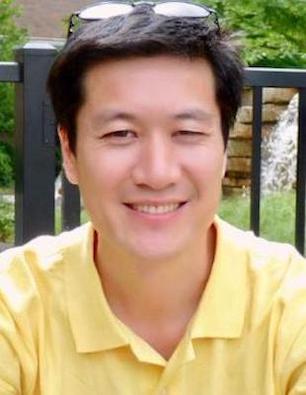 A big welcome to Dr. Zhiyong Cheng, an FSHN professor in Nutritional Sciences who specializes in metabolic disease and nutritional epigenomics. He received his Ph.D. in Analytical Biochemistry from Peking University and conducted postdoctoral research at the University of Michigan (Ann Arbor) and Harvard Medical School. Prior to arriving at UF a year ago, Dr. Cheng was an assistant professor at Virginia Tech. Read on to learn more about his path to studies in metabolic disease and nutritional epigenomics, his tips for making the most of online learning, and his commitment to teaching and knowledge transformation.
A big welcome to Dr. Zhiyong Cheng, an FSHN professor in Nutritional Sciences who specializes in metabolic disease and nutritional epigenomics. He received his Ph.D. in Analytical Biochemistry from Peking University and conducted postdoctoral research at the University of Michigan (Ann Arbor) and Harvard Medical School. Prior to arriving at UF a year ago, Dr. Cheng was an assistant professor at Virginia Tech. Read on to learn more about his path to studies in metabolic disease and nutritional epigenomics, his tips for making the most of online learning, and his commitment to teaching and knowledge transformation.
Tell me about how you became interested in the molecular mechanism of derangements in metabolic disease as well as nutritional epigenomics. When did you first begin studying these areas, and what path did you take to get to UF?
I have a long-standing interest in the molecular mechanism of human diseases and the potential to develop mechanism-based therapies. Metabolic diseases such as obesity and type 2 diabetes are a growing epidemic worldwide, and it got my attention over ten years ago when I was doing my postdoctoral research at Harvard Medical School. It has been recognized that the environment-gene interactions contribute to metabolic disease risk. Study of nutritional epigenomics will unravel how environmental factors (e.g., dietary preferences or eating habits) and may inform us of effective intervention options through lifestyle modification. Translational research has been the core value at UF, where interdisciplinary researchers and healthcare professionals work in close collaboration. I am very excited to be part of UF research to address complex metabolic diseases.
Would you share some of the recent projects in your lab?
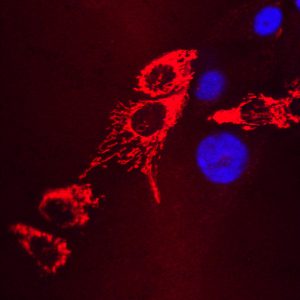
We have two major projects ongoing in the lab. (1) Understanding the molecular and cellular mechanism underlying obesity. Specifically, we study how a cellular remodeling and quality control process (called autophagy, meaning “self-eating”) regulate fat cell formation and expansion. Excessive fat cell formation and expansion may alter adipose biology and endocrine function, which eventually harms metabolic balance in our body and causes metabolic derangements. (2) We study epigenetic programming in obesity and diabetes, with the goal to identify epigenetic signatures that characterize the stage of metabolic diseases, reflect the contributions of lifestyle factors, and are informative and valuable to intervention practice.
Would you tell me about the classes you teach?
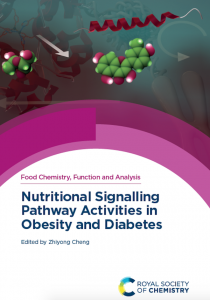
I’ve taught Nutrition and Metabolism (HUN 4221), and Advanced Human Nutrition (HUN 6245). I am going to teaching Nutritional Epigenomics (HUN6936/HUN4936), and Lab Techniques in Molecular Nutrition (HUN 4813C). I very much enjoy teaching and interacting with students by engaging them in critical thinking and problem solving. Being brought to the cutting-edge research and current issues in the field of human nutrition and metabolism, students are challenged and stretched outside their comfort zone to think and explore evidence for rationales and potential solutions to the questions. Inspiring and training students to think outside the box will benefit their lifelong learning and creativity.
What do you believe is the most important fact(s) the general public should know about metabolic disorders?
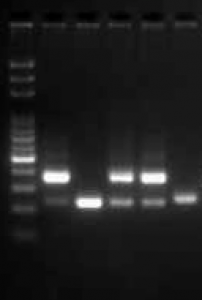
Metabolic disorders are preventable through our daily life practice. In fact, there are no known cure for most metabolic diseases, and lifestyle modification is the key to disease prevention. To maintain an active lifestyle with a balanced diet (in both quantity and quality) on a daily basis will promote metabolic well-being. To this end, knowledge or awareness is critical, but transformation and daily practice with persistence is also fundamental.
It’s been such a difficult time for you and your fellow faculty members, as well as students and staff, with the abrupt transition to online teaching. How has it been going for you?
It was and still is a tough time, but we have managed it well in the transition to online teaching/learning through proactive preparation and close communication. The major disturbance seemed to arise when students started relocation from campus to their homes. I found it very beneficial to keep in close touch with students and ensure that they are staying in place. In addition to email communication, I’ve used pre-class reading assignments and reflection activities to get a better idea about where they are and how I may better facilitate active learning in the online class. I’ve enjoyed so much reading their feedback and creative ideas through reflection activities.
Would you share your top tip(s) for making the most of the online learning experience, for faculty and for students?
Be proactive, positive, and flexible. Prepare for expected disturbance; think positively when dealing with a disturbance; provide alternatives when an unexpected disturbance occurs. This is what I’ve appreciated most during the transition.
Is this anything else you’d like to share about the recent changes going on?
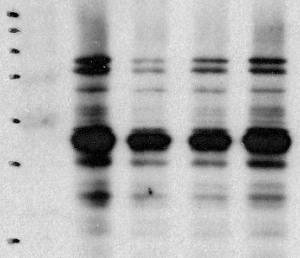
“Do the best we can, and we will get over it” is probably what I would say, and this is also how I’ve encouraged my students. There are some things we cannot do now (e.g., in person classes, travels for professional school interviews), but there are still a lot of things we can do well if we manage it nicely (e.g., online classes, online interviews for professional schools, or preparation for professional school admission tests). I am sure that faculty never find enough time for course development, grant application and management, and manuscript preparation. Be still and focus on the important things that I can do – this is how I’ve minimized the disturbance from recent changes.
Also, we all can do well to protect ourselves and people around us by following good practices, such as maintaining regular workouts, reducing non-essential travel, proper social distancing, washing our hands frequently, and not touching our faces or noses with unwashed hands.
Is there anything else you would like to add?
People may think that it is expensive to eat healthy. I used to think the same way, but there are many options you can explore to eat healthy and affordable if you are willing to cook at home. It does demand time though to learn/study and explore other options, and it requires you to stretch outside your comfort zone and think outside the box (e.g., what/how my parents fed me, or what the commercials say). A rule of thumb is to know what we eat in both quantity and quality. Epigenomic studies have produced evidence supporting “you are what you eat, what your parent ate, and what your grandparents ate.” Therefore, our dietary preferences do matter a lot. As such, research on personalized or precision nutrition for metabolic diseases has drawn increasing attention nowadays.
Interested in learning more about the field of nutritional sciences and other fascinating projects like Dr. Cheng’s? Read more here and here!
P.S. Want to read more about the amazing work going on in the FSHN department? See our previous student and faculty profiles below:
Undergraduate Students:
Shannon Mai, Dietetics
Alex Colon, Dietetics and Jenny Duong, Food Science
Graduate Students:
Savanna Curtis, Food Science
Carley Rusch and Matthew Beke, Nutritional Sciences
Alexa Hosey, Dietetics (MS/DI)
Faculty:
Dr. Naim Montazeri, Food Science/Food Virology
Dr. Jeanette Andrade, Dietetics
 1
1
